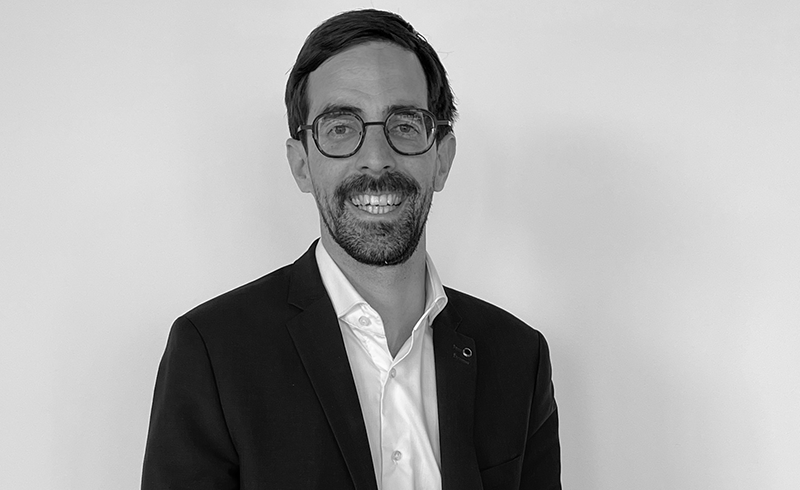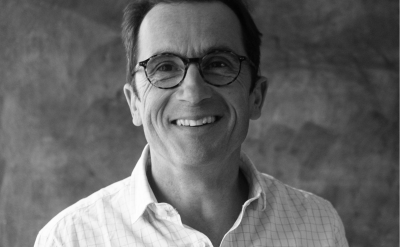News

Pierre Ippolito (MSc 2011) — a family business with one watchword: "get involved"
See the recent appointment of Pierre Ippolito (January 2024) as a Member of the Executive Board of the Mouvement des entreprises de France.
Hello Pierre, would you tell us briefly about yourself and your journey so far?
Hello, I'm 34 years old and I graduated with an MSc in Corporate Finance in 2011. I come from a family of entrepreneurs and I took over the general management of the family business, Ippolito, which is now divided into 4 lines of business: professional automotive, industry, tourism, and real estate. Our activities are highly diversified. Over recent years we opted for a rather horizontal and vertical diversification, and, since my arrival in the business and as CEO a few years ago, for conglomerate diversification.
When you chose Corporate Finance as a specialisation, did you intend to pursue a career in finance?
For a company CEO, finance is very important. It is a day-to-day management tool, both from an operational point of view — particularly in terms of management control (operational indicators) — and from a financial point of view (management of banking relations, financing management, etc.).
I chose my studies with a view to taking over the family business, and it seemed to me that finance skills were the most generalist and the most relevant at that time. I did my Master 2 as an apprentice in the family business, because I wanted to make a smooth transition internally. Plus, I knew I'd immediately be given responsibilities that were a good fit for my skills, which I would be able to put to good use right from the start. The apprenticeship went very well and I made a very quick transition to the professional world.
In fact, the professional side often took precedence over the educational side. But that wasn’t really a problem, because the future was more oriented towards the professional world than the educational world, at least in my case. I learned a lot during that time and took advantage of my apprenticeship to develop a dual skill set. I was in charge of all the management control that needed to be set up in the family SME. I focused on setting up indicators: analysing the company's financial and extra-financial data and putting them into a form that would allow them to be used on a recurring basis with all our stakeholders. That was my first assignment during my apprenticeship.
At the same time, I also structured and created the marketing department. Launching these two departments gave me an overarching view of the company and the opportunity to apply what I had learned in my various training courses and internships.
I then moved into sales, while also managing the marketing department. I was in charge of marketing some of our products — particularly commercial vehicles. This gave me an understanding of the sales side and the opportunity to see the implementation of a concrete marketing campaign.
I continued to work in management control and assisted my father in dealing with bankers. This afforded me an insight into the relationship between a company CEO and his financial partners, and also enabled me to apply what I had learned in terms of indicators that seemed relevant to an auditor — and therefore also to a banker — in terms of the financial ratios to monitor.
Then my father was forced to take a break for a few months, which meant I had to replace him at short notice as head of operations. I gave up my sales and marketing role at that point.
I decided to structure the operations department like a finance department to structure the company's approach.
When my father returned, I stayed on in this role and he became more involved in the board of directors, in back-office.
In 2014, I officially took over as the company’s CEO. That is when I really began to have an impact on the company's strategy and culture, as I tried to turn a family-run SME into an operational group with shared support functions, like a marketing department, human resources department, finance department and IT department, centralised at the head office in order to have quantum processes in place so the sites could focus solely on the operational side. This took time. I really focused on the strategy of diversifying both horizontally and vertically, with a view to controlling the vehicle value chain. The idea was that we could control the value chain of commercial vehicle-related services and products. For example, we were commercial vehicle dealers, so we also became tyre dealers, because these vehicles need tyres. We also began offering vehicle rental services and refrigeration unit repair services for refrigerated trucks.
SKEMA runs in the family, as your father Philippe also graduated from the school (class of 1985); what made you choose SKEMA at the time?
You're right. My father was very pleased with his education, so when I was looking for a programme I naturally turned to SKEMA (CERAM at the time). I preferred to stay in Sophia Antipolis, because I wanted to start building my professional network in the area where I was going to work. I could capitalise more on a local network than on extra-territorial experience.
You are now CEO of the Ippolito group. Can you tell us about your position and responsibilities?
My position as CEO is not like that of a CEO of a large corporation, because I still have a very operational role. I alternate between operational management and profit centre management. I oversee the day-to-day work of the branch managers, and I also have a more cross-functional role that involves coordinating the company's support functions. I organise and orchestrate the HR, marketing, IT and general services departments to achieve organisational efficiency and effectiveness. I support the company's development by structuring the industrialisation of external growth processes and relations with all stakeholders.
For me, there are 3 main responsibilities: managing the business functions, coordinating the support functions, and representing the company, i.e. being the marketing and symbolic figure of the business.
Would you introduce the Ippolito group briefly?
This is a family business that began with my grandfather in 1968: we started out as a dealership, selling and repairing lorries.
Today, the Ippolito group employs 930 people (including 70 at our head office), has a turnover of 227,000,000 euros, with 60 sites across the entire southern region of France and more than 1,500 vehicles and 30,000 tyres sold each year.
The volumes are fairly small compared with the automotive sector. The automotive market represents between 3 and 5,000,000 vehicles, whereas the industrial vehicle market represents 50,000 vehicles per year.
In the region and in our business sector, we have a market share of over 50%, which means that one in every two industrial vehicles comes from our group, and we carry out over 30,000 maintenance operations each year.
What challenges do you foresee for the future?
I had said that I would retire from operations when the company reached 1,000 employees, and we're not far from that! But I'm still young; I never imagined we'd reach that figure one day!
My goals are not really driven by numbers, but rather by meaning. Every day, I ask myself how I can have the best impact on my region in order to contribute to its development and prominence.
Our challenges lie in the ecological transition in mobility. That is a real issue.
We're also working hard on the meaning of our missions. Our ambition is to become a mission-driven company, and to work on our employer brand to highlight what we do. In fact, few people realise it, but family businesses have always been CSR-oriented. What we used to call local family management was CSR. Family businesses have a real CSR culture in their DNA, and they didn’t wait for CSR to exist before financing personal projects or supporting their employees in their personal lives through loans. This is something that has always existed; today we need to formalise it.
Our real challenge is to support our long-standing core activity — sometimes described as polluting, because lorries are seen as polluters — so that it can actively contribute to the transition, to the mobility of tomorrow, and play an essential role in its region thanks to its conglomerate diversification.
These are our challenges for now and the future...
What role did your training at SKEMA play in your career path?
There are two key points I'd like to highlight about my time at SKEMA: the open-mindedness that this training gave me in the broadest sense of the term. What obviously comes to mind is the school's international outlook, which is rooted in its culture, but that wasn't the most important aspect for me; instead, it was the openness to a wide range of professional and extra-professional interests. I think it's thanks to this open-mindedness that I thought of conglomerate diversification into business sectors not necessarily connected with our history, and that today I have this entrepreneurial openness that was and remains in the school's DNA.
The second point is the opportunity for an apprenticeship, which was the perfect link between the advantages of a school like SKEMA and the business world. The strength of the educational world lies in keeping up with professional and operational needs.
Apprenticeships are a perfect bridge between the educational world and the professional world. My apprenticeship really helped me to hit the ground running in my career.
What memories do you have of life at SKEMA?
I have fond memories of my graduation ceremony at the Grand Rex in Paris, but above all, I remember the CERAM/ESC LILLE merger. I was there, so had a front-row seat, and we knew we were making history.
I remember when the new name, SKEMA, was announced in the lecture hall; it was a powerful moment because we were all aware that we were witnessing a watershed moment for the school. I believe that this strategic shift, led by Alice Guilhon, enabled the school to become what it is today.
A few months ago, you were elected president of UPE 06. What are your duties and plans/ambitions within this organisation?
To me, it's important to integrate the new generation (Y) into our economic and business institutions. I believe that our society is undergoing massive changes and needs to be reengineered, both politically and institutionally.
Many young people have little or no interest in politics, either out of disgust, lack of interest, or because they no longer believe in it. I tend to believe that we can make what we want of this world, but to do that, we have to get involved. It was important for a young local to get involved in long-established labour market institutions. It is possible to change things from the inside by supporting societal evolution, but to do that you have to get involved and propose constructive solutions. We need to think about how to involve these young people, make them aware of our institutions, show them the value of these institutions and see with them how we can make them evolve so that they better meet not only the needs of tomorrow's entrepreneurs and companies, but also the challenges facing society.
The second key reason for my involvement is to support CSR and the energy transition in companies.
In my opinion, the two are linked and must be part of a global approach.
Today, the environmental situation, climate change and global warming need to be taken into account in companies, from an ecological, societal and managerial point of view.
If your company doesn't take an interest in these issues, it runs the very real risk of experiencing recruitment and turnover problems. This is one of the essential missions of the UPE 06, which is keen to support this transition and help our region's companies with these vital issues.
And last but not least is the promotion of enterprise in our society. Enterprise must regain an important place in our society, as today companies are a pillar bringing balance to our social system. We have more and more societal responsibilities because we contribute taxes to finance the system. We are the biggest contributors to budgets because we create jobs, because we have to support the business models of the future, and because we play an increasingly important societal role with our employees and in social dialogue, which is evolving towards greater transparency and support.
In my opinion, enterprise must be recognised by the state, local authorities, elected representatives and society as a whole as the most important contributor to the development of our society.
It's lobbying, but lobbying in the best sense of the word. Take Michelin for example: Clermont-Ferrand wouldn't be what it is without Michelin.
What projects would you like to set up with SKEMA?
We are currently involved with SKEMA in a number of areas: the first is to work with SKEMA’s different bodies, such as SKEMA Ventures, to examine how the business world and local companies can advise or participate in the financing of certain student-led institutions. We need to build bridges between the educational world such as SKEMA and the business sector.
We're also involved in helping students learn about and discover different careers through the creation of a forum or a company/school day, with round-table discussions on specific themes where company directors can talk to the students and at the same time recruit for internships, apprenticeships and jobs. We're fortunate to live in a region with a wide variety of business sectors, so it's up to us to build the bridges.
We want to raise awareness of the different business sectors and show that graduates of a management school like SKEMA can work in any industry, not just luxury goods and finance, for example.
What advice do you have for our students/graduates?
The first thing I'd advise them to do is to get involved in a field they're passionate about, and really give it their all. Because there's nothing like working with passion, whatever the sector, whatever the mission, whatever the job, whether it's about performance or out of personal interest.
The second thing is to do things with common sense. Sometimes, we tend to lose our common-sense approach, because our society pushes us to do so. At such times, it's essential to take a step back and get back on the path that makes sense for us and makes sense for society, for the economy and for our journey.
Humanity has developed on the basis of this common sense for thousands of years, so we have to be part of this history, despite all the technology available to us. So, let's not forget it! And from time to time, let's ask ourselves the real questions. Money may be a driving force, but it's not the only one, nor is it necessarily the most enduring.
Contact: Pierre Ippolito - CEO of Ippolito and President of UPE06 and MEDEF06




